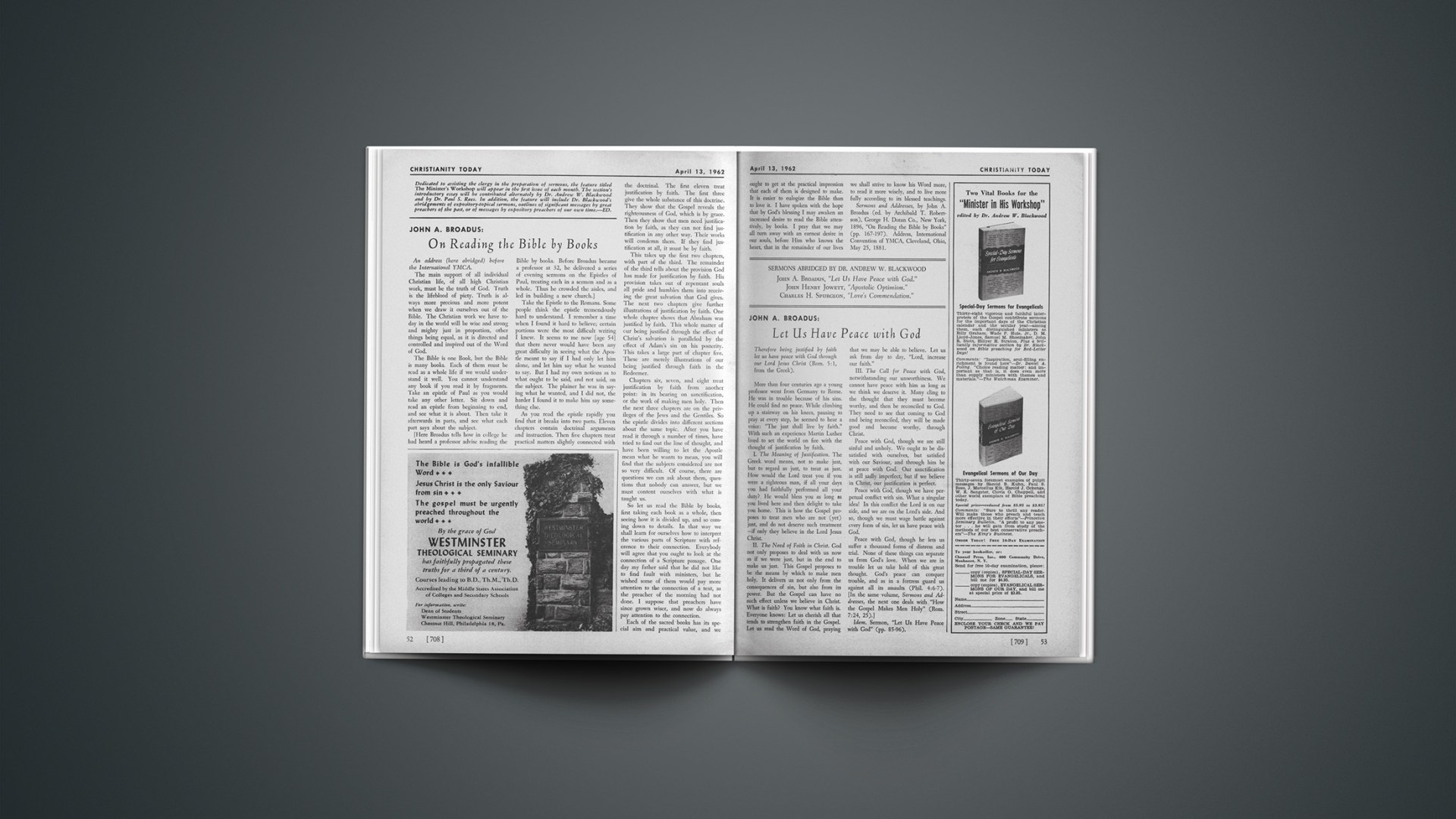SERMONS ABRIDGED BY DR. ANDREW W. BLACKWOOD
JOHN A. BROADUS, “Let Us Have Peace with God.”
JOHN HENRY JOWETT,“Apostolic Optimism.”
CHARLES H. SPURGEON,“Love’s Commendation.”
Therefore being justified by faith let us have peace with God through our Lord Jesus Christ (Rom. 5:1, from the Greek).
More than four centuries ago a young professor went from Germany to Rome. He was in trouble because of his sins. He could find no peace. While climbing up a stairway on his knees, pausing to pray at every step, he seemed to hear a voice: “The just shall live by faith.” With such an experience Martin Luther lived to set the world on fire with the thought of justification by faith.
I. The Meaning of Justification. The Greek word means, not to make just, but to regard as just, to treat as just. How would the Lord treat you if you were a righteous man, if all your days you had faithfully performed all your duty? He would bless you as long as you lived here and then delight to take you home. This is how the Gospel proposes to treat men who are not (yet) just, and do not deserve such treatment—if only they believe in the Lord Jesus Christ.
II. The Need of Faith in Christ. God not only proposes to deal with us now as if we were just, but in the end to make us just. This Gospel proposes to be the means by which to make men holy. It delivers us not only from the consequences of sin, but also from its power. But the Gospel can have no such effect unless we believe in Christ. What is faith? You know what faith is. Everyone knows: Let us cherish all that tends to strengthen faith in the Gospel. Let us read the Word of God, praying that we may be able to believe. Let us ask from day to day, “Lord, increase our faith.”
III. The Call for Peace with God, notwithstanding our unworthiness. We cannot have peace with him as long as we think we deserve it. Many cling to the thought that they must become worthy, and then be reconciled to God. They need to see that coming to God and being reconciled, they will be made good and become worthy, through Christ.
Peace with God, though we are still sinful and unholy. We ought to be dissatisfied with ourselves, but satisfied with our Saviour, and through him be at peace with God. Our sanctification is still sadly imperfect, but if we believe in Christ, our justification is perfect.
Peace with God, though we have perpetual conflict with sin. What a singular idea! In this conflict the Lord is on our side, and we are on the Lord’s side. And so, though we must wage battle against every form of sin, let us have peace with God.
Peace with God, though he lets us suffer a thousand forms of distress and trial. None of these things can separate us from God’s love. When we are in trouble let us take hold of this great thought. God’s peace can conquer trouble, and as in a fortress guard us against all its assaults (Phil. 4:6–7). [In the same volume, Sermons and Addresses, the next one deals with “How the Gospel Makes Men Holy” (Rom. 7:24, 25).]
Idem. Sermon, “Let Us Have Peace with God” (pp. 85–96).










